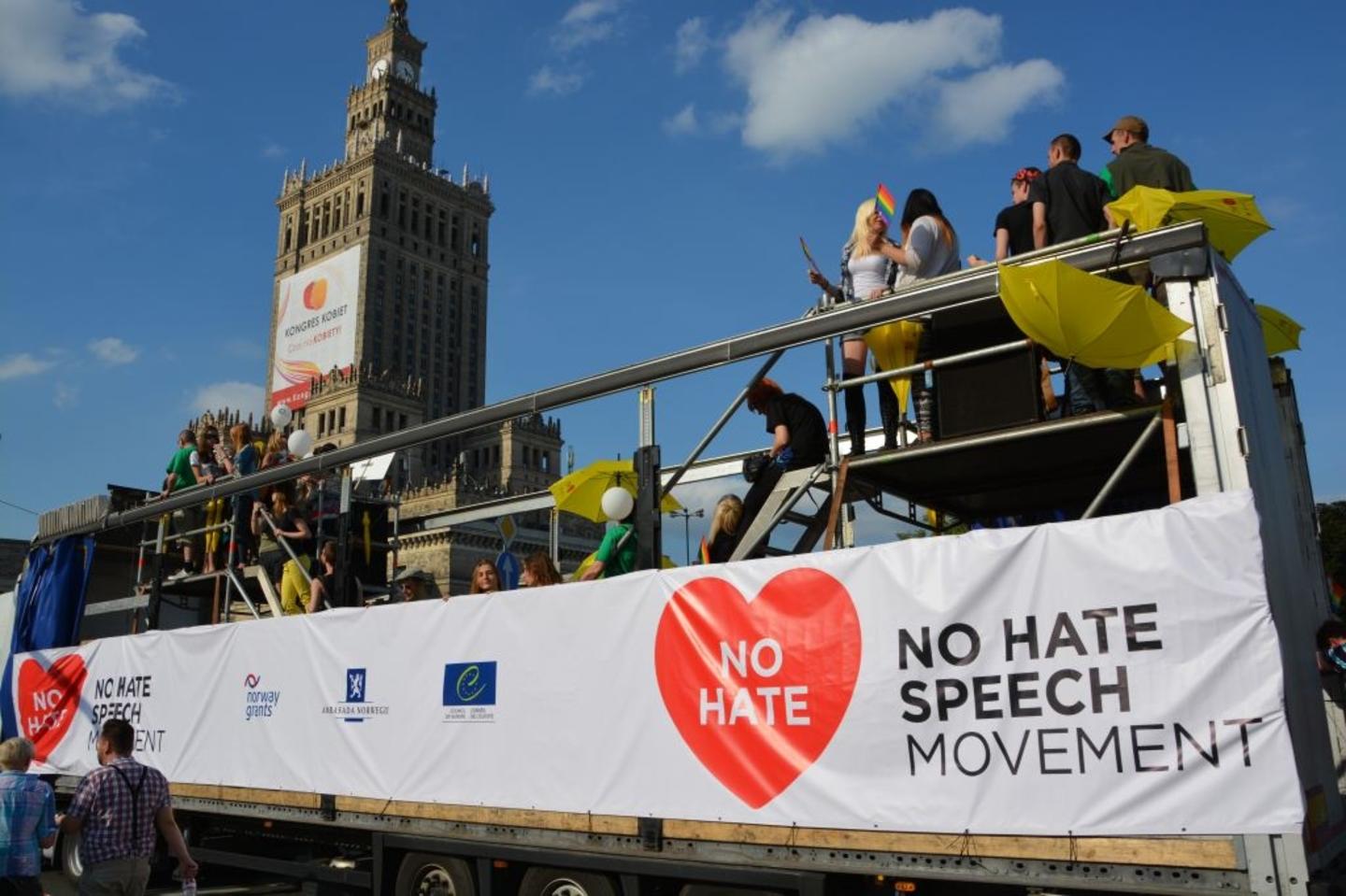Worth around €160 million, the Grants’ NGO programmes are one of the biggest funding schemes for civil society in Central Europe. All programmes address issues related to human rights and equality, and several also support projects dealing specifically with LGBT-issues. One such project in Hungary will organise a Coming Out Day event series in order to increase the visibility of the LGBT community and its rights in Hungary. Through a project in Lithuania, the Grants are supporting efforts to raise awareness of the discrimination faced by many LGBT people in the country, put LGBT issues on the political agenda and identify concrete measures to prevent and address discrimination.
Wider effort
The efforts of the Grants to stop discrimination, however, are not limited to LGBT issues; they also include women, and minority groups such as the Roma. The Grants are also a strategic partner to the Council of Europe’s NO HATE SPEECH MOVEMENT. Launched in March 2013, the campaign is based on human rights education, youth participation and media literacy.
Although much progress has been made when it comes to discrimination against LGBT people in Europe, a lot still remains. According to the European Commission, close to half of Europeans believe that discrimination on the grounds of sexual orientation is widespread in their country and in the last five years a quarter of all respondents to a survey carried out by the EU Agency for Fundamental Rights said they had been attacked or threatened with violence because of their sexuality.
The International Day Against Homophobia and Transphobia was first conceived in 2004 and has grown to become and international event. May 17 was chosen as the date in order to commemorate the fact that on May 17 19990, the World Health Organisation chose to declassify homosexuality as a mental disorder.
